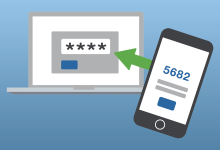
Online privacy has always been a growing concern for many internet users. With the rise of surveillance, data breaches, and invasive tracking, it’s no wonder that people are seeking tools to protect their privacy online. Two popular options for enhancing online privacy are Tor and VPNs. While both Tor and VPNs offer privacy benefits, they have distinct differences that make them suitable for different use cases. So, Tor vs. VPN, which one is best for you? In this comprehensive guide, we will delve into the intricacies of Tor and VPNs, compare their features, and help you determine which tool is best suited for your privacy needs.
Understanding Tor: Anonymity on the Web
Tor, short for “The Onion Router,” is a free software and browser that allows users to browse the internet anonymously. The Tor network operates through a decentralized system, relying on a network of volunteer-run servers spread across the globe. This network of servers, known as nodes, is designed to encrypt and route internet traffic in a way that makes it extremely challenging to trace back to the original user.
When you use the Tor browser, your internet traffic is encrypted and routed through a series of randomly selected nodes before reaching its final destination. This multi-layered encryption and routing process makes it difficult for anyone to track your online activities or identify your true IP address. By bouncing your traffic through different nodes, Tor provides a high level of anonymity, making it an ideal choice for those seeking to browse the web without leaving behind a digital footprint.
The Inner Workings of Tor
To better understand how Tor works, let’s take a closer look at the process your internet traffic goes through when using the Tor browser:
- Encryption and Routing: When you initiate a request, such as visiting a website or sending a message, the Tor browser encrypts your data multiple times using different layers of encryption. This encrypted data is then routed through a series of three nodes: a guard node, a middle server, and an exit node.
- Guard Node: The first node in the chain, known as the guard node, receives your encrypted data and removes one layer of encryption. The guard node can see your IP address but does not have access to the specific details of your request.
- Middle Server: After passing through the guard node, your data is forwarded to a middle server. The middle server removes another layer of encryption and passes the data along to the next node in the chain.
- Exit Node: Finally, your data reaches the exit node, where the last layer of encryption is removed. The exit node can see the content of your request, but it cannot identify you as the sender.
By encrypting and routing your internet traffic through multiple nodes, Tor ensures that your online activities remain private and anonymous. This makes it difficult for anyone, including internet service providers, government agencies, or websites, to track or monitor your online presence.
Pros and Cons of Using Tor
Like any privacy tool, Tor has its advantages and drawbacks. Before deciding to use Tor, it’s important to consider both sides of the equation:
Pros of Using Tor:
- Anonymous Web Browsing: By concealing your IP address and encrypting your internet traffic, Tor provides a high level of anonymity, making it difficult to track your online activities.
- Access to the Dark Web: The Tor browser allows you to access websites on the dark web, which are not indexed by traditional search engines and can only be accessed through Tor.
- Bypassing Censorship: Tor can help you bypass internet censorship imposed by governments or organizations, allowing you to freely access websites that may be blocked in your region.
- Decentralized and Difficult to Shut Down: The decentralized nature of the Tor network, with its volunteer-operated nodes, makes it challenging for any single entity to shut down the entire network.
Cons of Using Tor:
- Slower Browsing Speeds: Due to the multi-layered encryption and routing process, browsing the internet through Tor can be slower compared to using a regular browser.
- Potential for Malicious Exit Nodes: While the Tor network provides anonymity, the exit node, which decrypts your data before it reaches its final destination, can potentially be operated by an entity with malicious intent. This raises concerns about data interception or monitoring.
- Limited Accessibility: Some websites may block or restrict access to Tor users, making it challenging to visit certain websites or use specific online services.
- Association with Illegal Activities: While Tor itself is a legitimate tool for online privacy, it is also associated with illegal activities conducted on the dark web. This association may raise suspicions or scrutiny from authorities.
It’s important to weigh these pros and cons and consider your specific privacy needs before deciding to use Tor. While Tor provides a high level of anonymity, it may not be the best option for every situation.
Understanding VPNs: Securing Your Online Connections
Virtual Private Networks, or VPNs, are another popular tool used to enhance online privacy and security. Unlike Tor, which focuses on anonymity, VPNs primarily aim to secure internet connections and protect user data. A VPN creates a private encrypted tunnel between your device and the internet, shielding your online activities from prying eyes.
When you connect to a VPN server, your internet traffic is encrypted and routed through the VPN server before reaching its final destination. This encryption ensures that your data remains confidential and cannot be intercepted by hackers, internet service providers, or other malicious entities. Furthermore, a VPN masks your IP address, making it appear as if you are browsing the internet from the location of the VPN server.
The Inner Workings of VPNs
To better understand how VPNs work, let’s explore the process of establishing a VPN connection:
- Encryption and Tunneling: When you initiate a connection to a VPN server, your device establishes an encrypted tunnel between your device and the server. This tunnel ensures that all data sent and received between your device and the internet is encrypted and secure.
- Data Routing: Once the VPN connection is established, your internet traffic is routed through the VPN server before reaching its intended destination. This routing process ensures that your data passes through the VPN’s encrypted tunnel, protecting it from potential surveillance or interception.
- IP Address Masking: As your internet traffic passes through the VPN server, your IP address is replaced with the IP address of the VPN server. This masking of your real IP address enhances your online privacy and makes it difficult to trace your online activities back to your device.
By encrypting your internet traffic, routing it through a secure tunnel, and masking your IP address, VPNs provide an additional layer of privacy and security for your online connections.
Pros and Cons of Using VPNs
As with any privacy tool, VPNs have their own set of advantages and disadvantages. To help you make an informed decision, let’s explore the pros and cons of using VPNs:
Promoted contents:
Pros of Using VPNs:
- Enhanced Privacy and Security: VPNs encrypt your internet traffic, protecting it from hackers, surveillance, and other malicious entities. This ensures that your online activities remain private and confidential.
- Bypassing Geographic Restrictions: VPNs allow you to bypass geographic restrictions imposed by websites or streaming services, enabling you to access content that may be blocked in your region.
- Secure Public Wi-Fi Connections: When connected to a VPN, your data is encrypted, even when using public Wi-Fi networks. This protects you from potential threats and ensures that your sensitive information remains secure.
- Preventing Bandwidth Throttling: Some internet service providers may throttle or limit your internet connection speed for specific activities, such as streaming or torrenting. By using a VPN, you can prevent these limitations and enjoy faster internet speeds.
Cons of Using VPNs:
- Costs and Subscription Fees: While there are free VPN options available, premium VPN services often require a subscription fee. It’s important to consider the costs associated with using a VPN, especially if you opt for a reputable and feature-rich service.
- Potential for Data Logging: Not all VPNs are created equal, and some free VPNs may log and sell your data to third parties. It’s crucial to choose a VPN provider with a strict no-logs policy to ensure that your data remains private.
- Possible Speed Reduction: The encryption and routing process involved in using a VPN can potentially slow down your internet connection. While reputable VPN providers strive to minimize speed reductions, it’s important to consider this aspect if you require fast and uninterrupted internet access.
By weighing these pros and cons, you can determine whether a VPN aligns with your privacy and security needs. While VPNs provide robust encryption and secure internet connections, they may not be suitable for every situation.
Tor vs. VPN: Choosing the Right Privacy Tool
With a better understanding of Tor and VPNs, it’s time to address the question of which tool is right for you. While both Tor and VPNs offer privacy benefits, they serve different purposes and cater to different use cases. Let’s explore the factors to consider when choosing between Tor and a VPN:
Anonymity vs. Security:
If your primary concern is anonymity and you want to browse the web without leaving a digital footprint, Tor is a suitable choice. Tor’s multi-layered encryption and routing process provide a high level of anonymity, making it difficult for anyone to track your online activities.
On the other hand, if your focus is on securing your internet connections and protecting your data from hackers or surveillance, a VPN is the better option. VPNs encrypt your internet traffic and route it through secure servers, ensuring that your online activities remain private and confidential.
Speed and Performance:
Tor’s multi-node routing process can result in slower browsing speeds compared to using a regular browser or a VPN. If speed is a priority and you require fast and uninterrupted internet access, a VPN may be a better choice. VPNs generally offer faster connections, especially when using premium services that prioritize speed and performance.
Accessibility and Compatibility:
While Tor is compatible with most operating systems, it primarily functions as a browser. This means that only the internet activity conducted within the Tor browser benefits from the anonymity provided by Tor. If you require privacy and security for all internet activities, including messaging apps or other web browsers, a VPN is the more versatile option.
Legal Considerations:
It’s important to consider the legal implications of using Tor or a VPN in your jurisdiction. While both Tor and VPNs are legal in most countries, some regions may have restrictions or regulations regarding their usage. It’s crucial to familiarize yourself with the laws and regulations in your country to ensure that your online activities remain within legal boundaries.
Combination of Tor and VPN:
In some cases, individuals may choose to use both Tor and a VPN simultaneously. This combination can provide an additional layer of privacy and security. By using a VPN before connecting to the Tor network, you can protect your IP address from being exposed to the entry node and enhance your overall anonymity. However, using Tor and a VPN together can result in slower browsing speeds due to the additional encryption and routing processes.
Conclusion: Finding the Right Balance
In the ongoing battle for online privacy, both Tor and VPNs offer valuable tools for protecting your digital footprint. When choosing between Tor and a VPN, it’s essential to assess your specific privacy needs and consider factors such as anonymity, security, speed, and legal considerations.
If your primary concern is anonymity and browsing the web without leaving traces, Tor is a suitable option. However, if you prioritize secure internet connections, protection from hackers, and the ability to access geo-restricted content, a VPN is the better choice.
Ultimately, the decision between Tor and a VPN depends on your individual requirements and risk tolerance. By understanding the differences and weighing the pros and cons, you can make an informed decision and find the right balance between privacy, security, and accessibility in your online activities.
Remember, regardless of whether you choose Tor, a VPN, or a combination of both, it’s crucial to practice good online hygiene and remain vigilant to protect your digital privacy in an ever-evolving digital landscape. Stay informed, stay secure, and enjoy a safer online experience.








